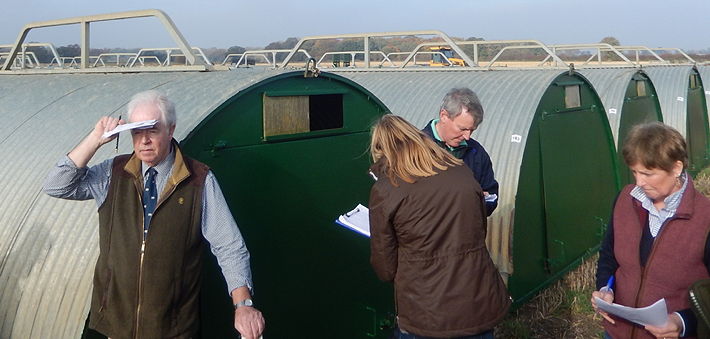Unfortunately, at a time when producers need every penny the SPP has slipped by 0.46p to 200.09p and with on farm pig weights starting to build up there could be further falls in domestic pig prices despite smaller numbers coming forward.
The situation in Europe also paints a bleak picture with the latest influential German producer price slumping by 10 Euro Cents to stand at €1.9, which is equivalent to a meagre 166.4p/kg in our money but continues to undercut domestic prices by a country mile.
UK weekly contribution prices are also continuing to reflect negative price levels with the three big abattoirs standing on between 1.73p/kg and 190p/kg, which is still well below the SPP and completely unviable as far as producers are concerned.
Spot bacon buyers have once again plenty of choice with prices in the 190p/kg region and around 200p/kg for lighter weights. This trend is likely to continue in the run up to Christmas and it could turn out to be a very difficult year end and 2023 for all concerned.
A possible ray of sunshine might be that consumers could be tempted to buy more pork if Avian Flu continues to wreak havoc in the poultry industry.
Cull Sows
Falling prices again with most export values easing back by around 3p/kg and export buyers generally dropping their bids to between 66p/kg and 71p/kg, although following all the political shenanigans over the past few days a weaker Pound has nudged the value of the Euro up from 86.4p seven days ago to 87.6p on Friday.
Weaners
Still a fairly cloudy picture as far as weaner values are concerned, although recent reductions in feed costs might encourage one or two buyers to return to the fray but only if spot weaners can be bought at a discount.
In the main, 7kg contract weaners are trading anywhere between £42/ head at the bottom end and towards £50/head for RSPCA Assured piglets, but spot weaners remain hard to move.
Feed Market Trends
Some glimmers of hope for UK pig producers as far as feed costs are concerned following the latest weekly UK spot ex farm feed wheat average price dropping from £270/t seven days ago to £250/t. The futures market is also reflecting modest reductions in ingredient values, but this remains an extremely volatile sector depending on which side of the bed Vladimir Putin has got out of in the morning.
Signs however that the existing Ukraine grain corridor might be kept open contrary to earlier suggestions could work in pig producers’ favour, but there are still more questions than answers in this sector.
Feed ingredient prices traded on the futures markets saw feed wheat for November delivery at £274/t and for September 2023 at £267/t. Feed barley values have followed suit with November deals agreed at £253/t and prices twelve months ahead at £252/t.
Protein prices remain at generally similar levels on the week with Hipro soya for November delivery at £525/t and for May – October 2023 contracts at £458/t. Rapemeal continues to have bullish tendencies with November – January 2023 at £364/t.
And finally…
in addition to the parliamentary chaos faced by the nation over the past few weeks pig producers have their own set of problems to try and resolve.
These include reports that staff at the Food Standards Agency are being balloted for strike action and are looking for a pay increase which matches inflation of almost 10%, but so far offers of between 2% and 5% have been made. If the strike goes ahead the UK meat industry could grind to a halt leading to a build up of overweight pigs during the Christmas/New Year period.
In addition to this, reports of Swine Dysentery rearing its ugly head is a signal for producers to step up their biosecurity levels, not forgetting the ongoing threat from African Swine Fever. Increasing energy costs are another mountain to climb which could make some of the smaller abattoirs unviable leading to fewer outlets being available in the future.




